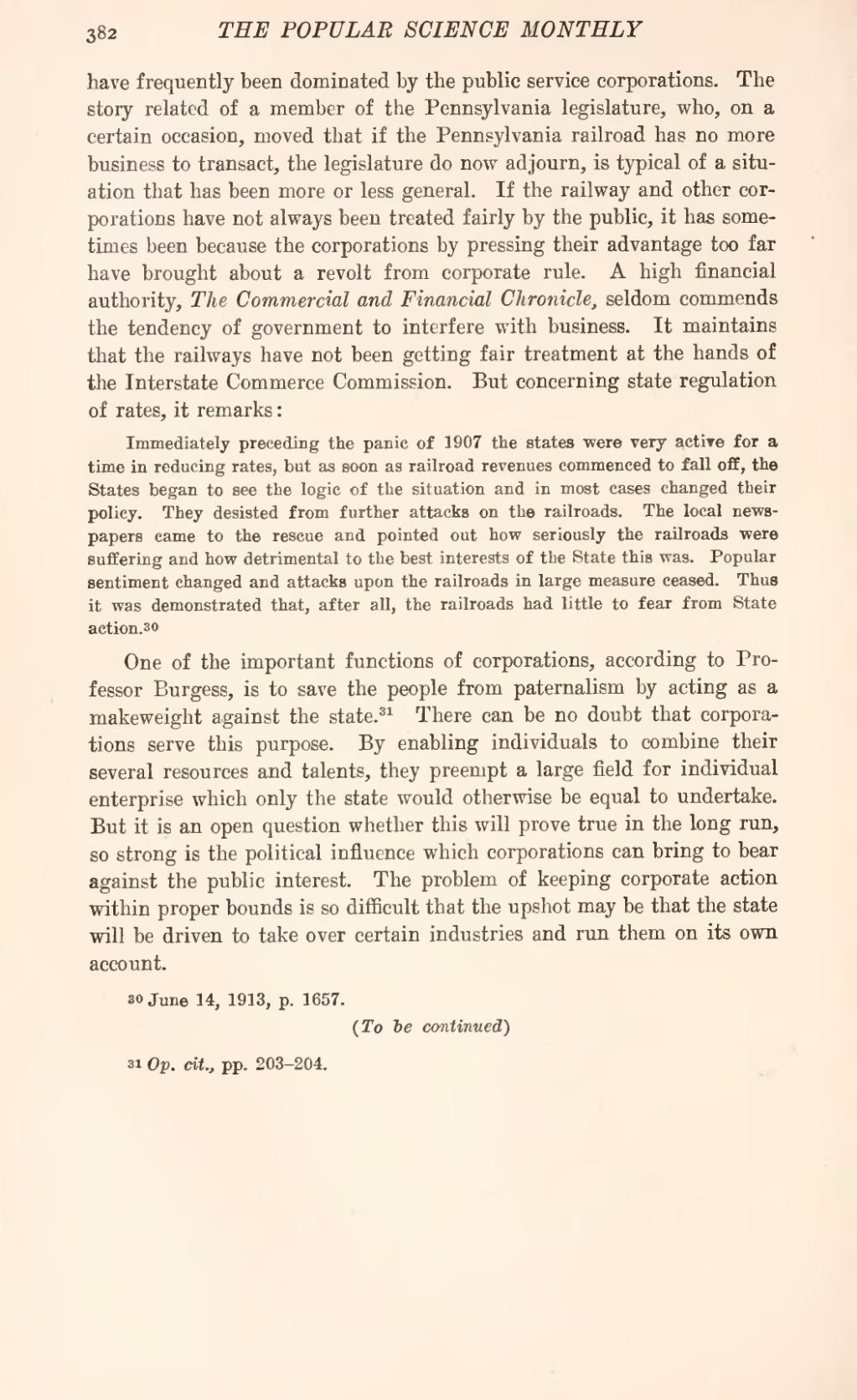have frequently been dominated by the public service corporations. The story related of a member of the Pennsylvania legislature, who, on a certain occasion, moved that if the Pennsylvania railroad has no more business to transact, the legislature do now adjourn, is typical of a situation that has been more or less general. If the railway and other corporations have not always been treated fairly by the public, it has sometimes been because the corporations by pressing their advantage too far have brought about a revolt from corporate rule. A high financial authority, The Commercial and Financial Chronicle, seldom co m mends the tendency of government to interfere with business. It maintains that the railways have not been getting fair treatment at the hands of the Interstate Commerce Commission. But concerning state regulation of rates, it remarks:
Immediately preceding the panic of 1907 the states were very active for a time in reducing rates, but as soon as railroad revenues commenced to fall off, the States began to see the logic of the situation and in most cases changed their policy. They desisted from further attacks on the railroads. The local newspapers came to the rescue and pointed out how seriously the railroads were suffering and how detrimental to the best interests of the State this was. Popular sentiment changed and attacks upon the railroads in large measure ceased. Thus it was demonstrated that, after all, the railroads had little to fear from State action.[1]
One of the important functions of corporations, according to Professor Burgess, is to save the people from paternalism by acting as a makeweight against the state.[2] There can be no doubt that corporations serve this purpose. By enabling individuals to combine their several resources and talents, they preempt a large field for individual enterprise which only the state would otherwise be equal to undertake. But it is an open question whether this will prove true in the long run, so strong is the political influence which corporations can bring to bear against the public interest. The problem of keeping corporate action within proper bounds is so difficult that the upshot may be that the state will be driven to take over certain industries and run them on its own account.
(To be continued)
